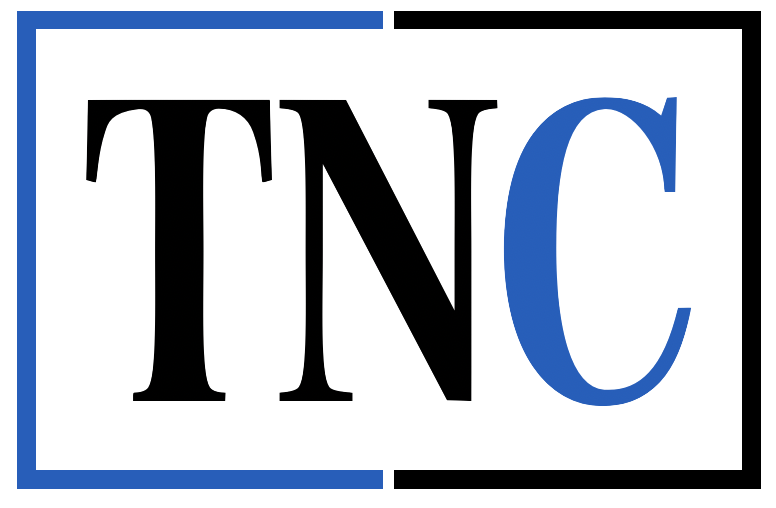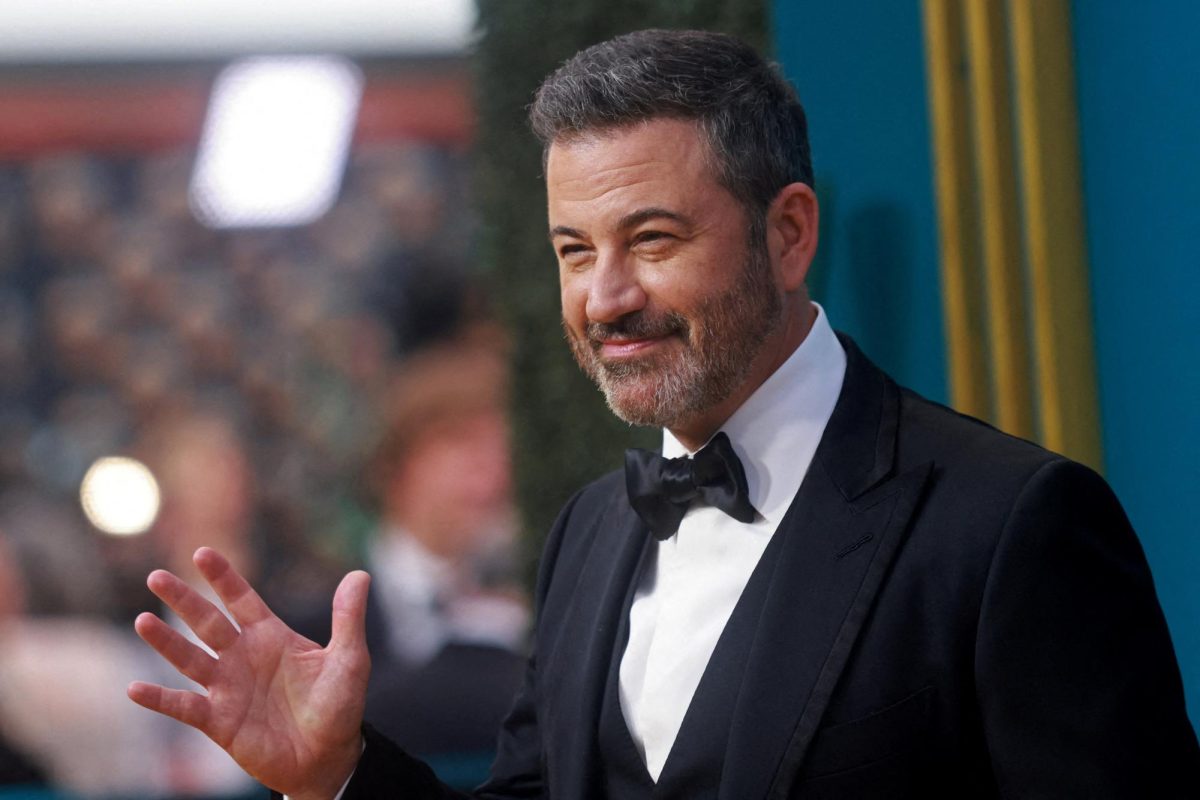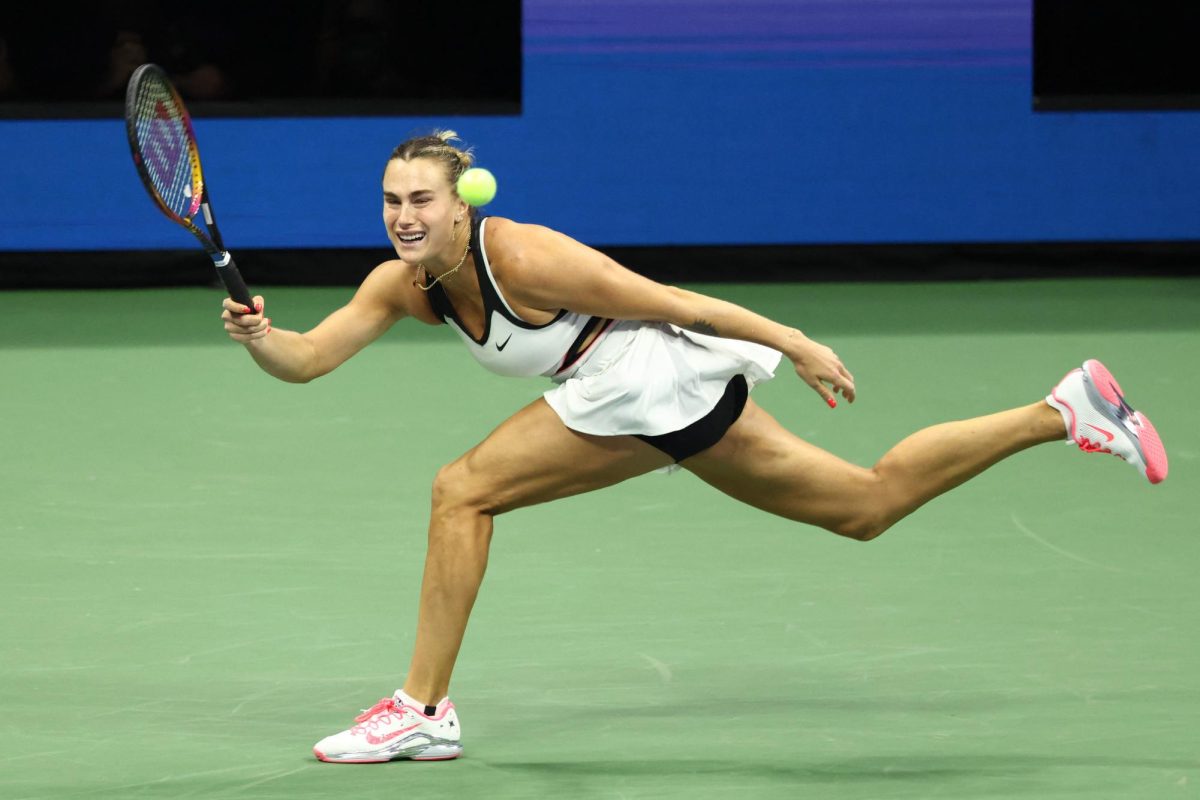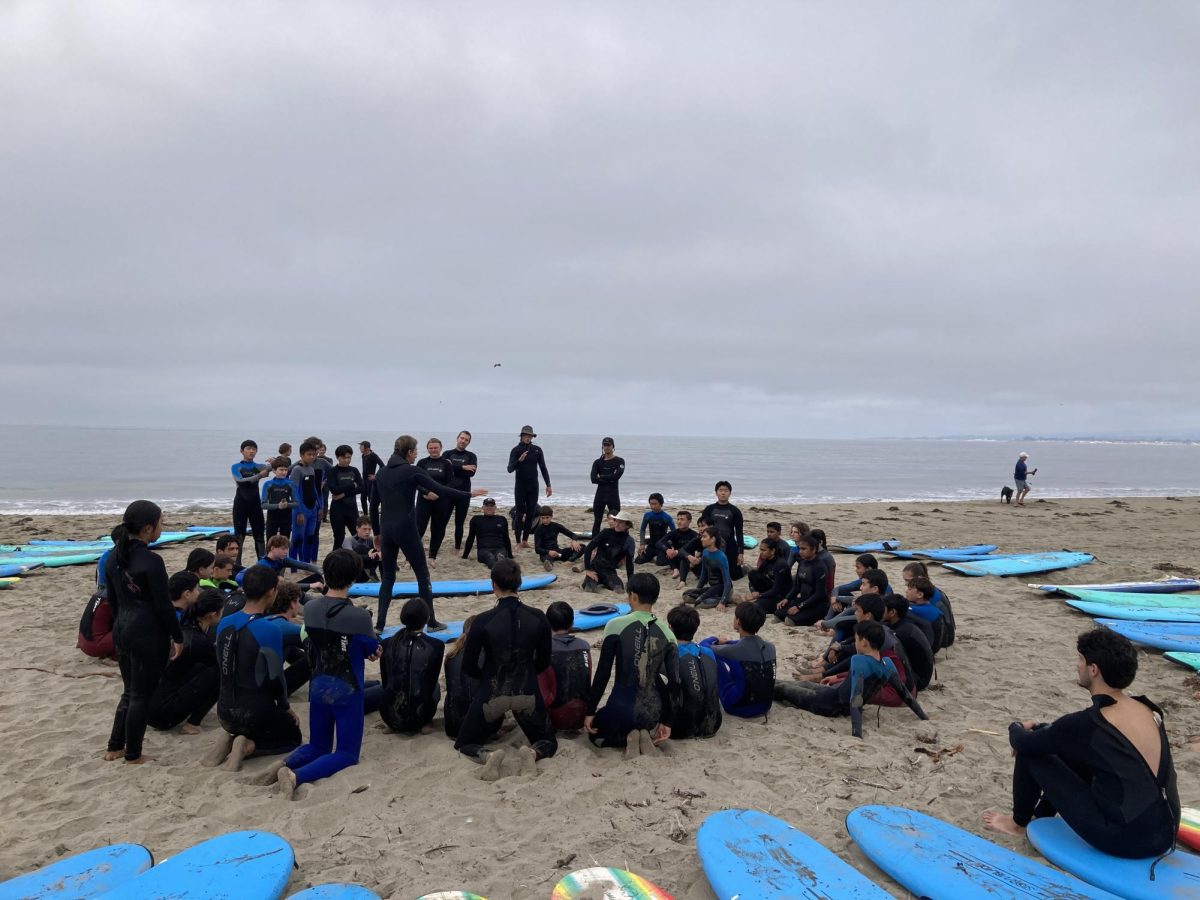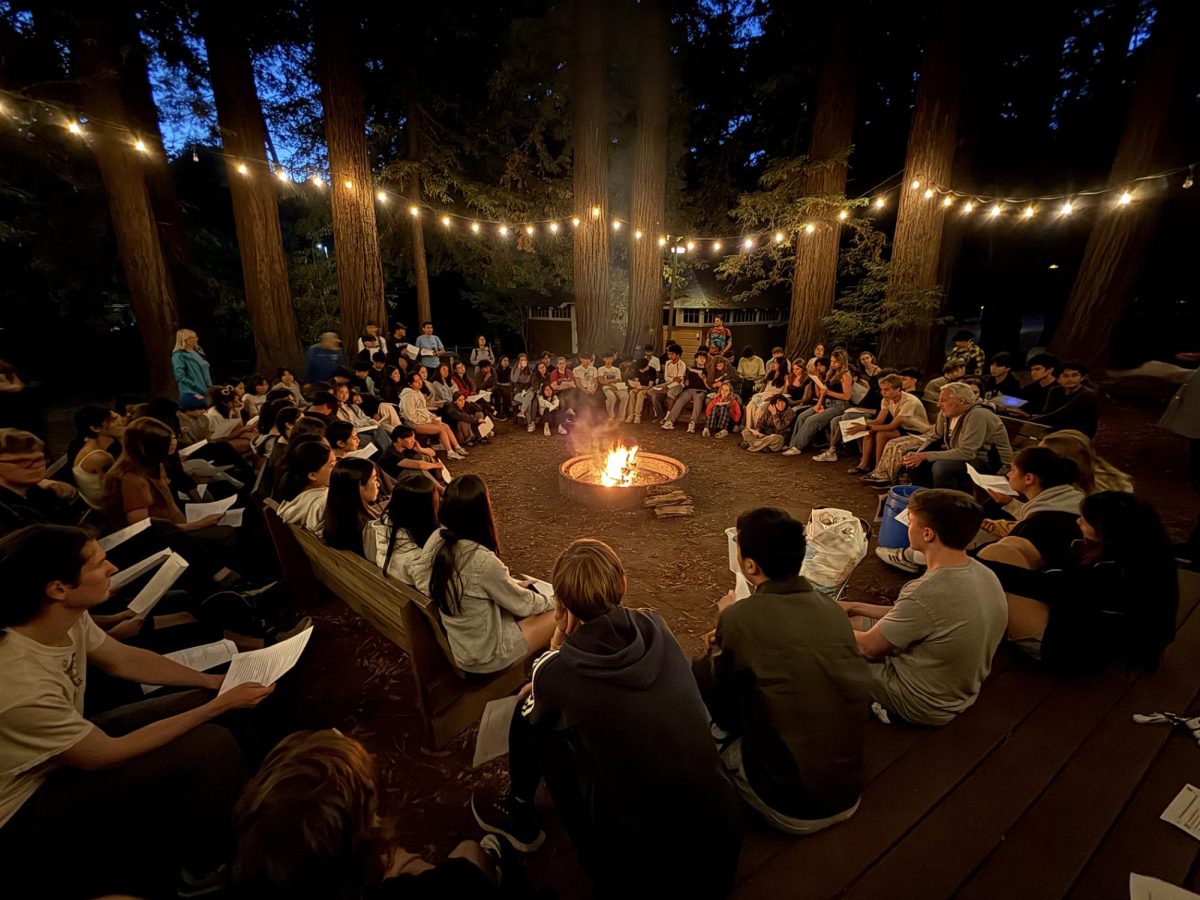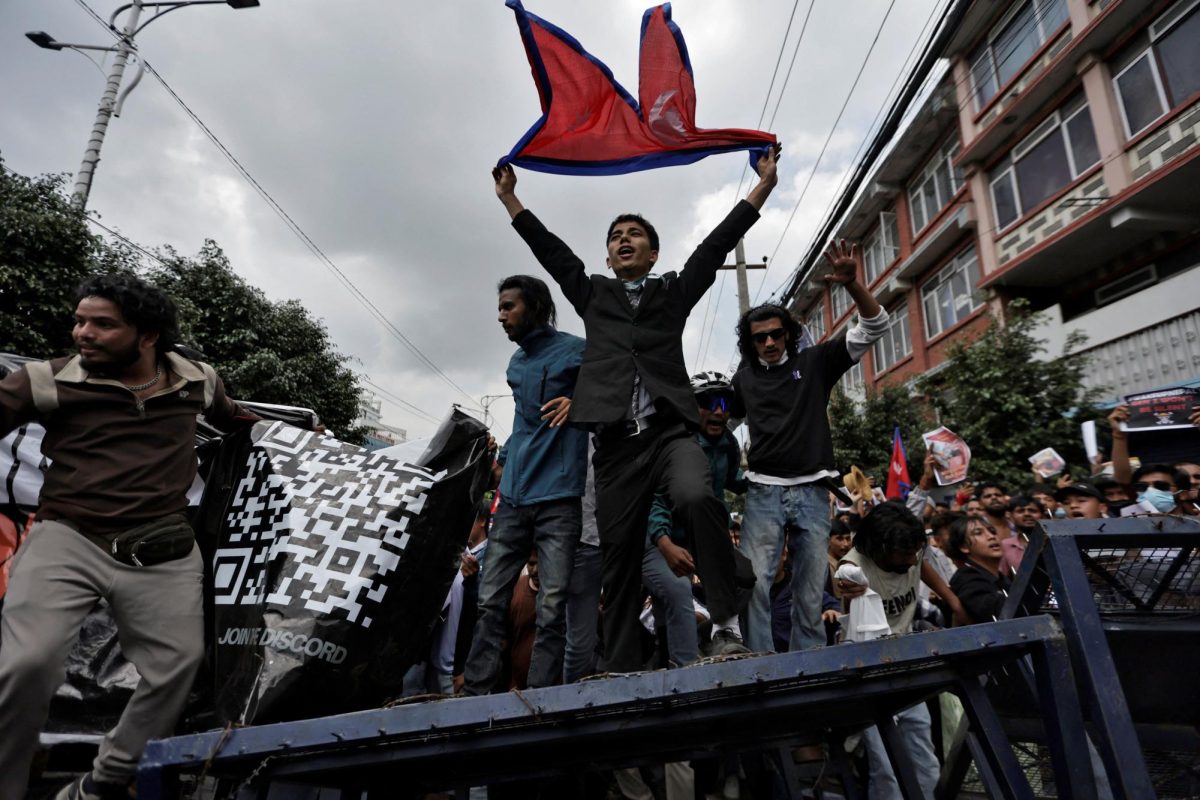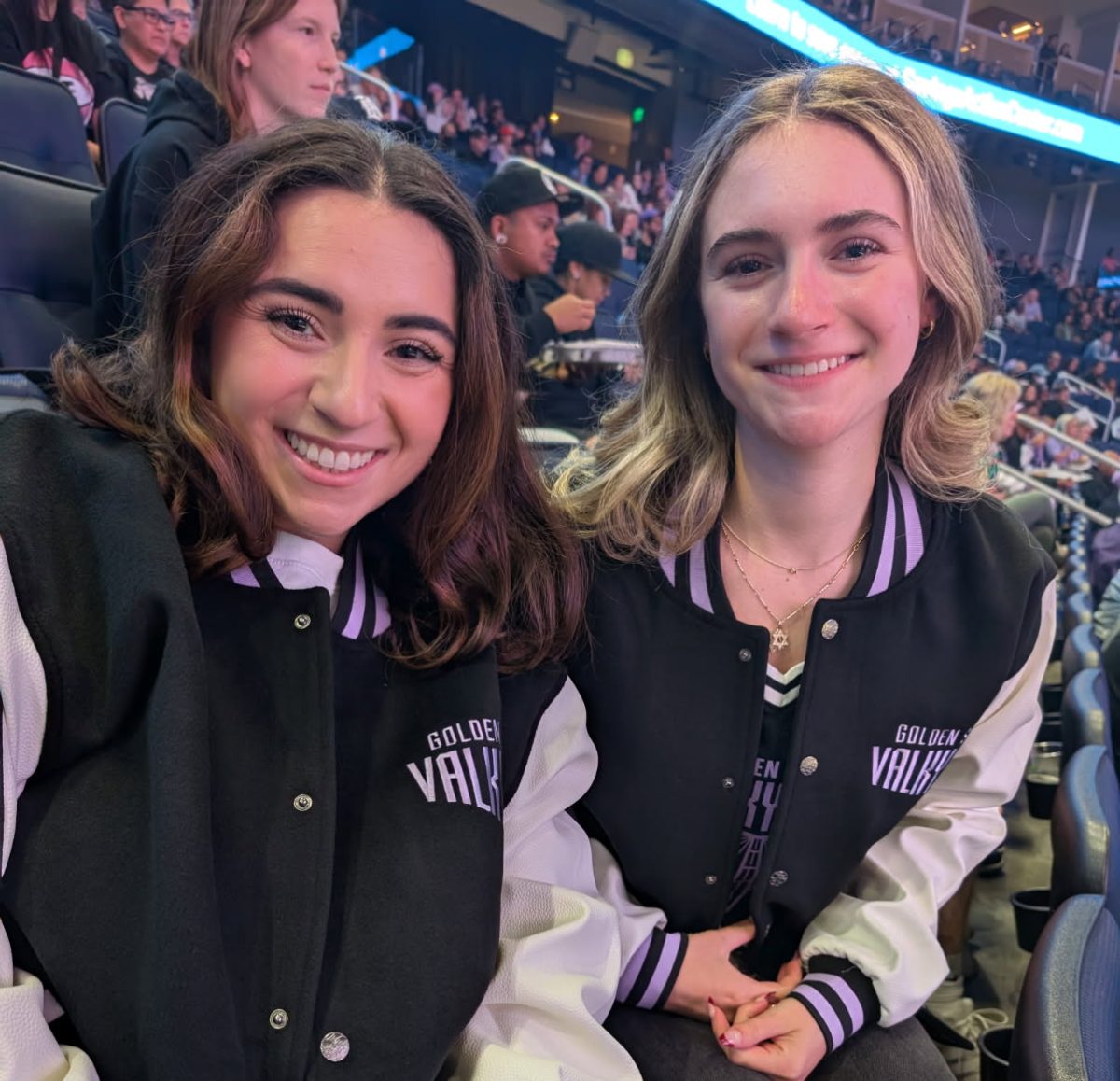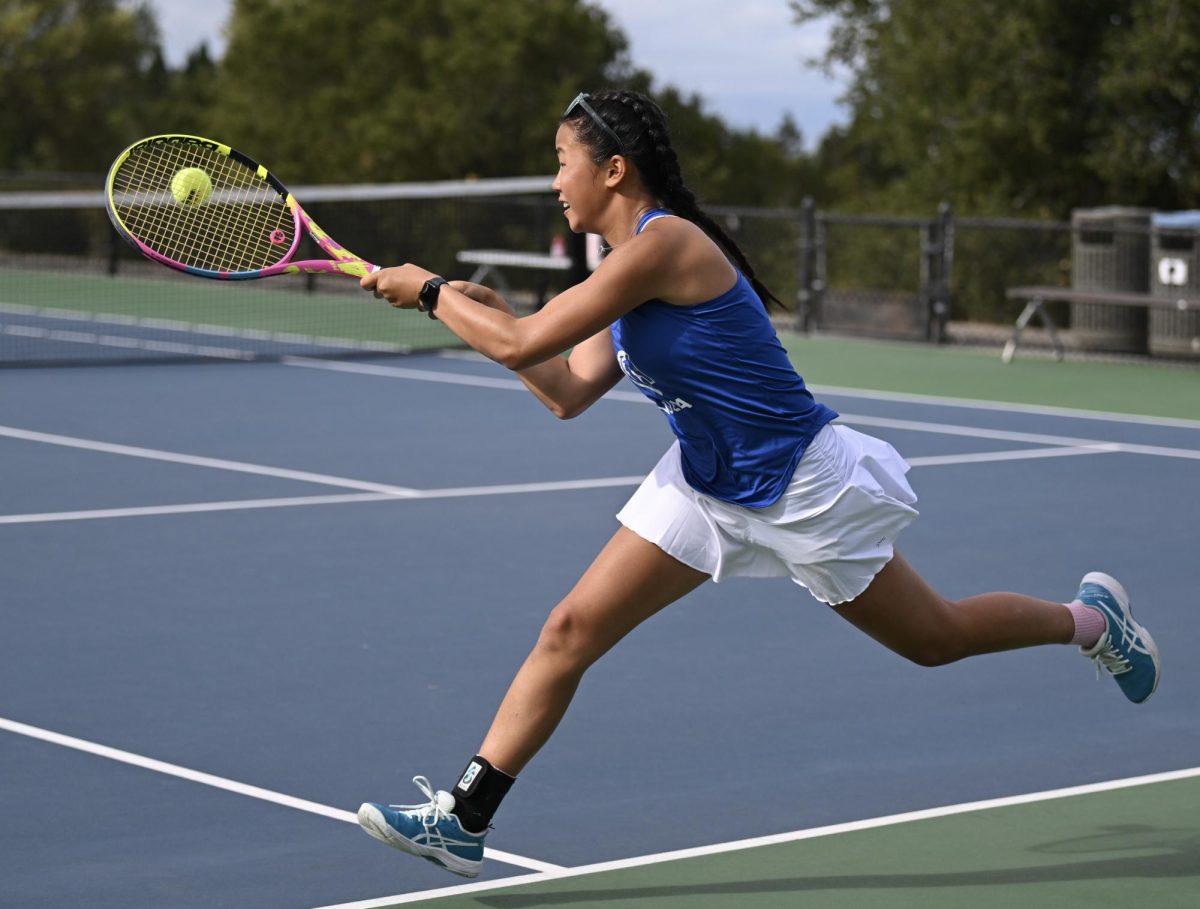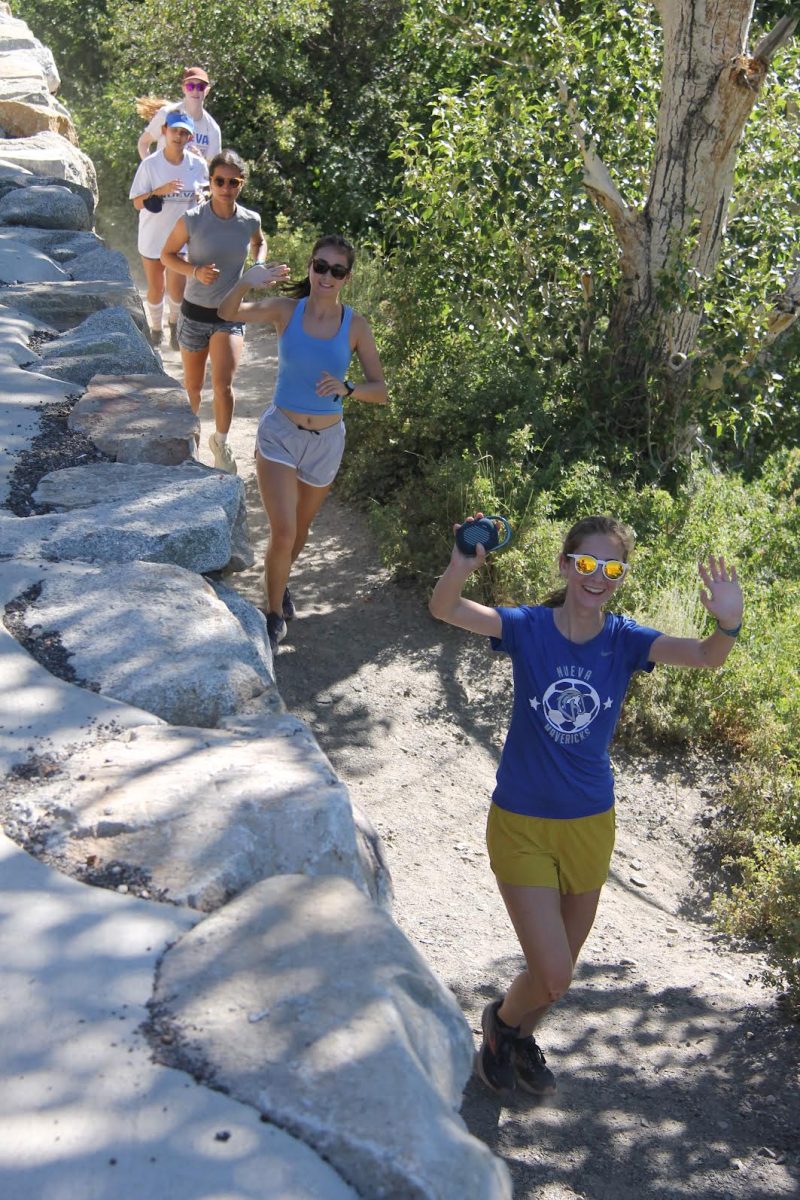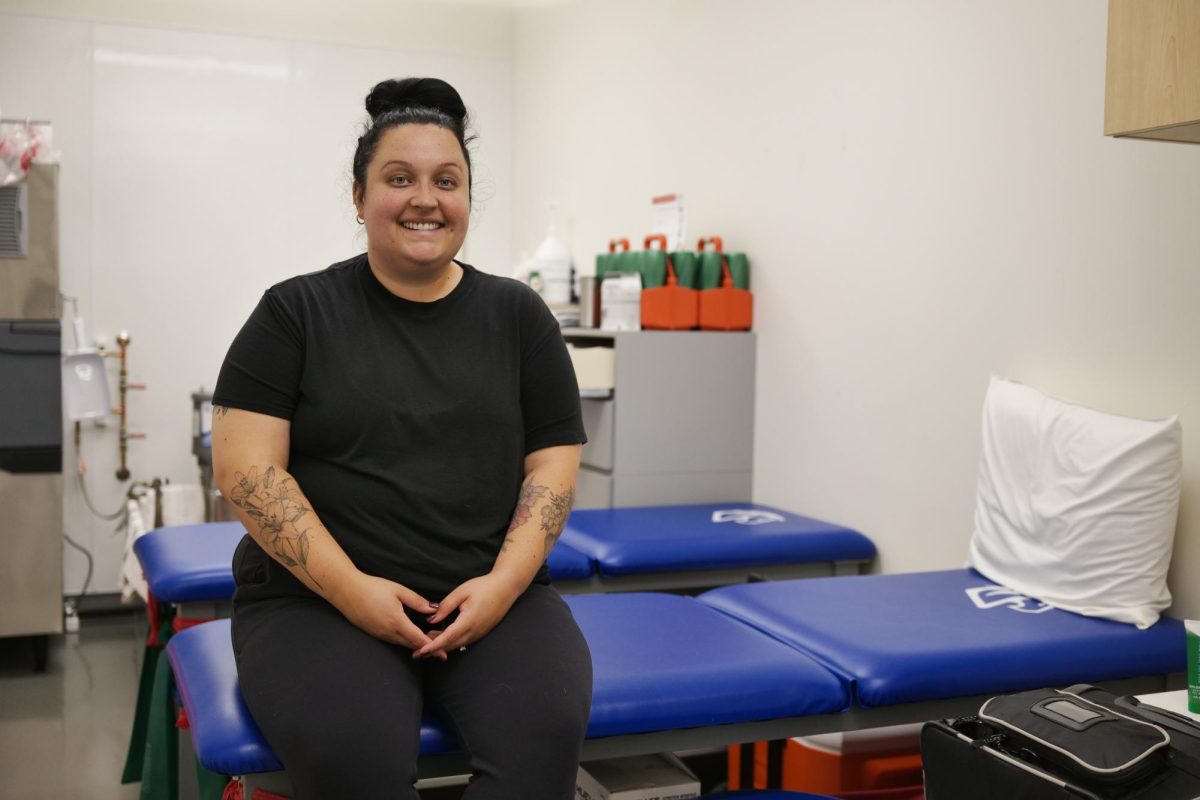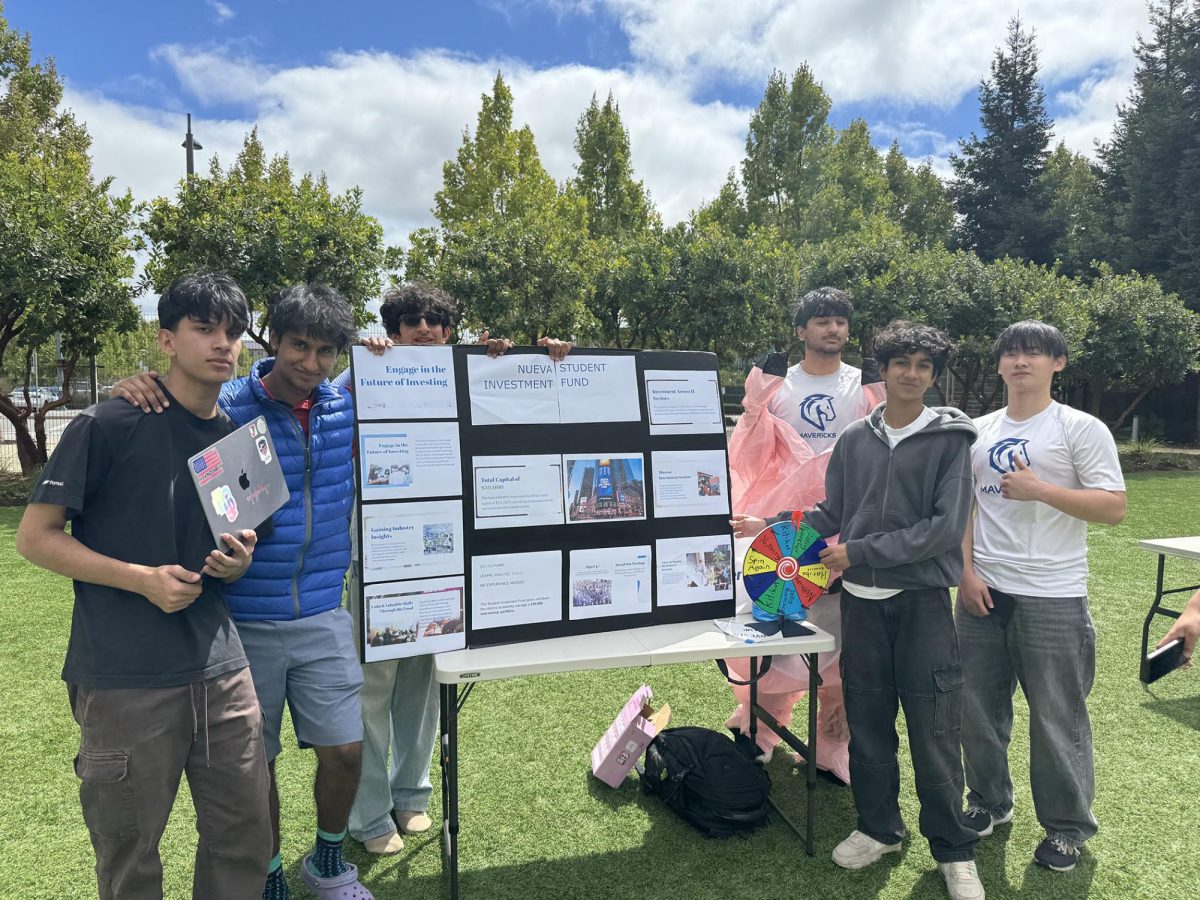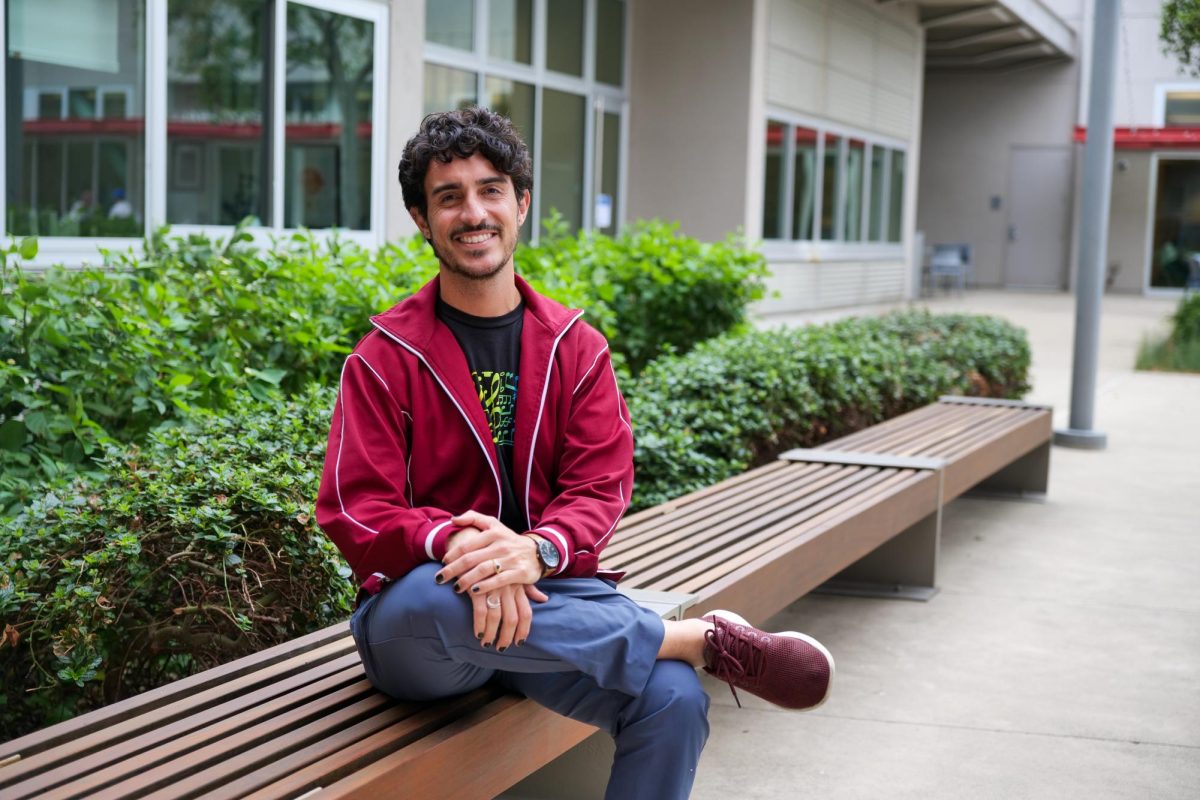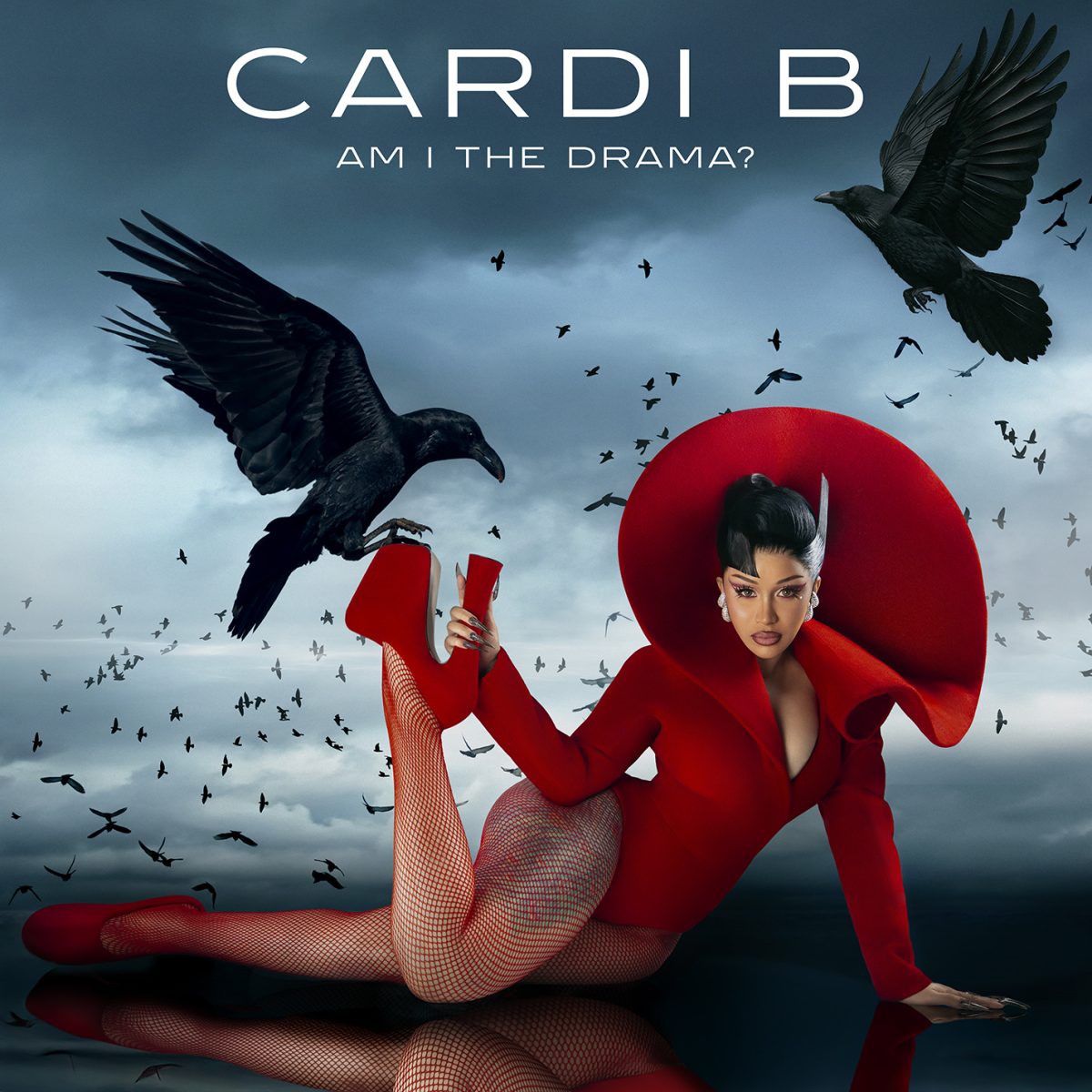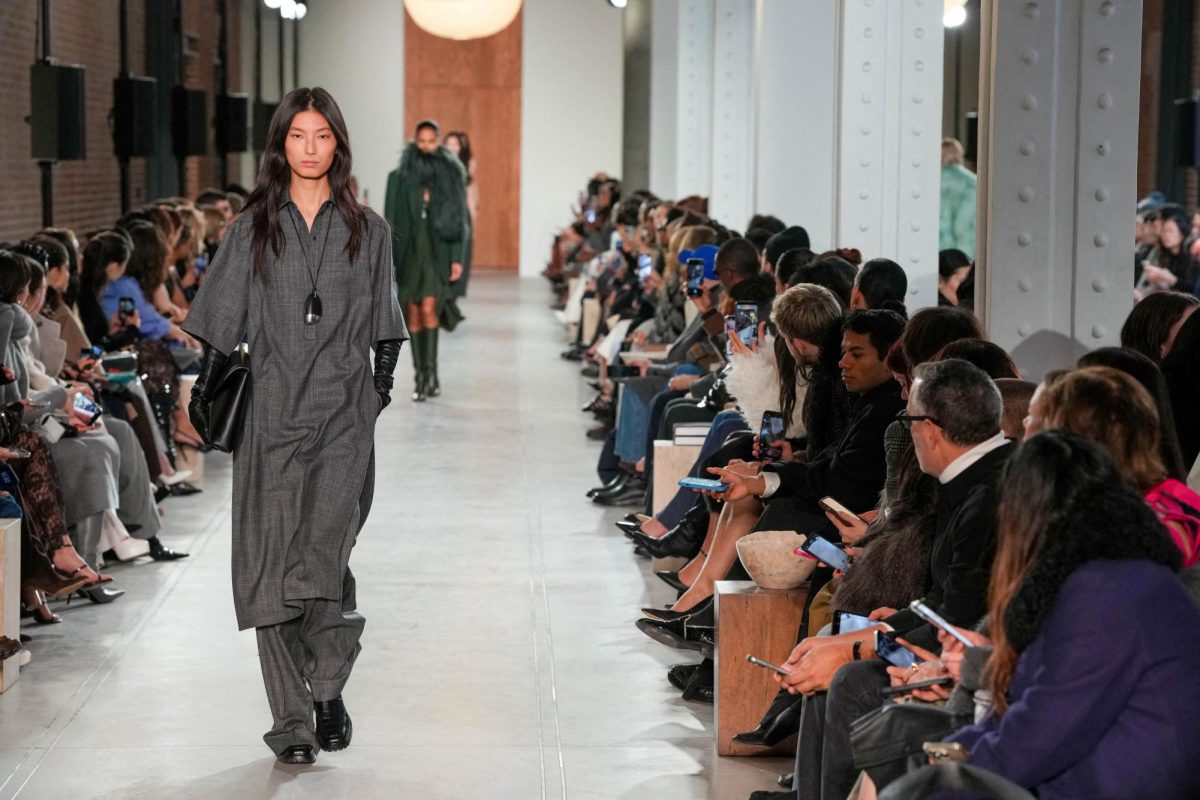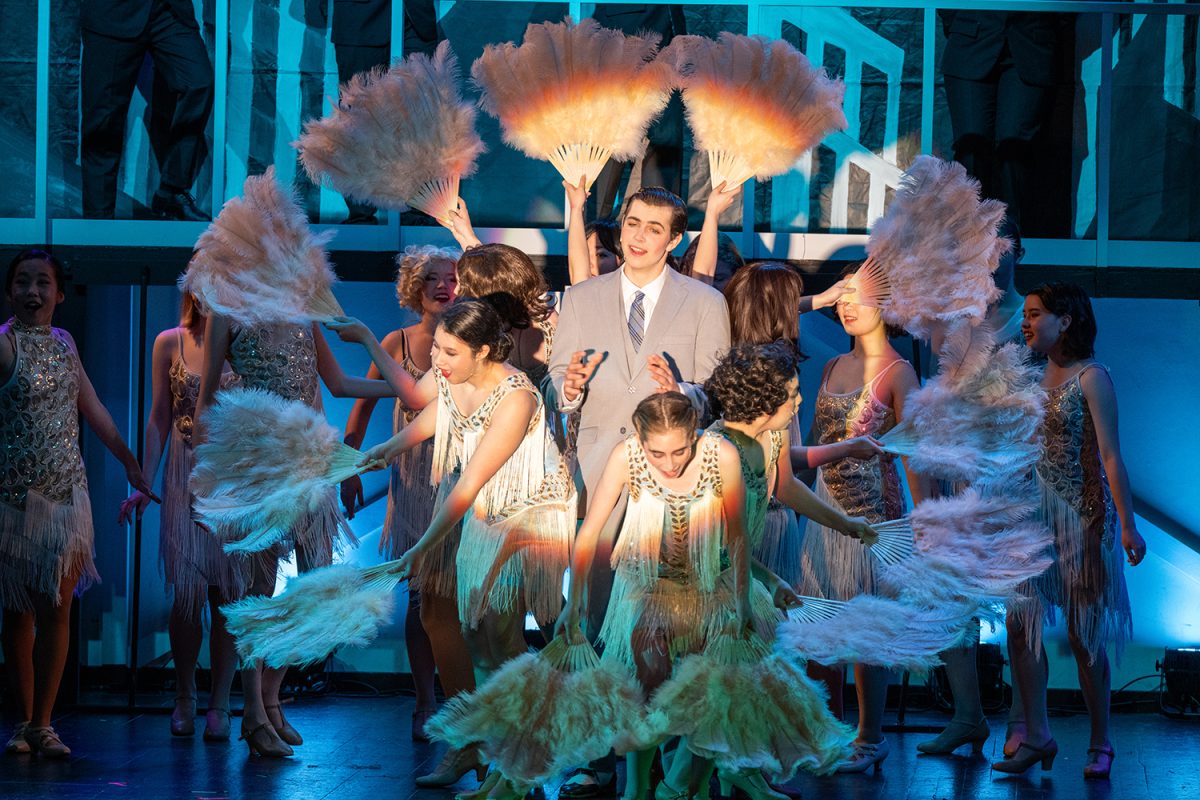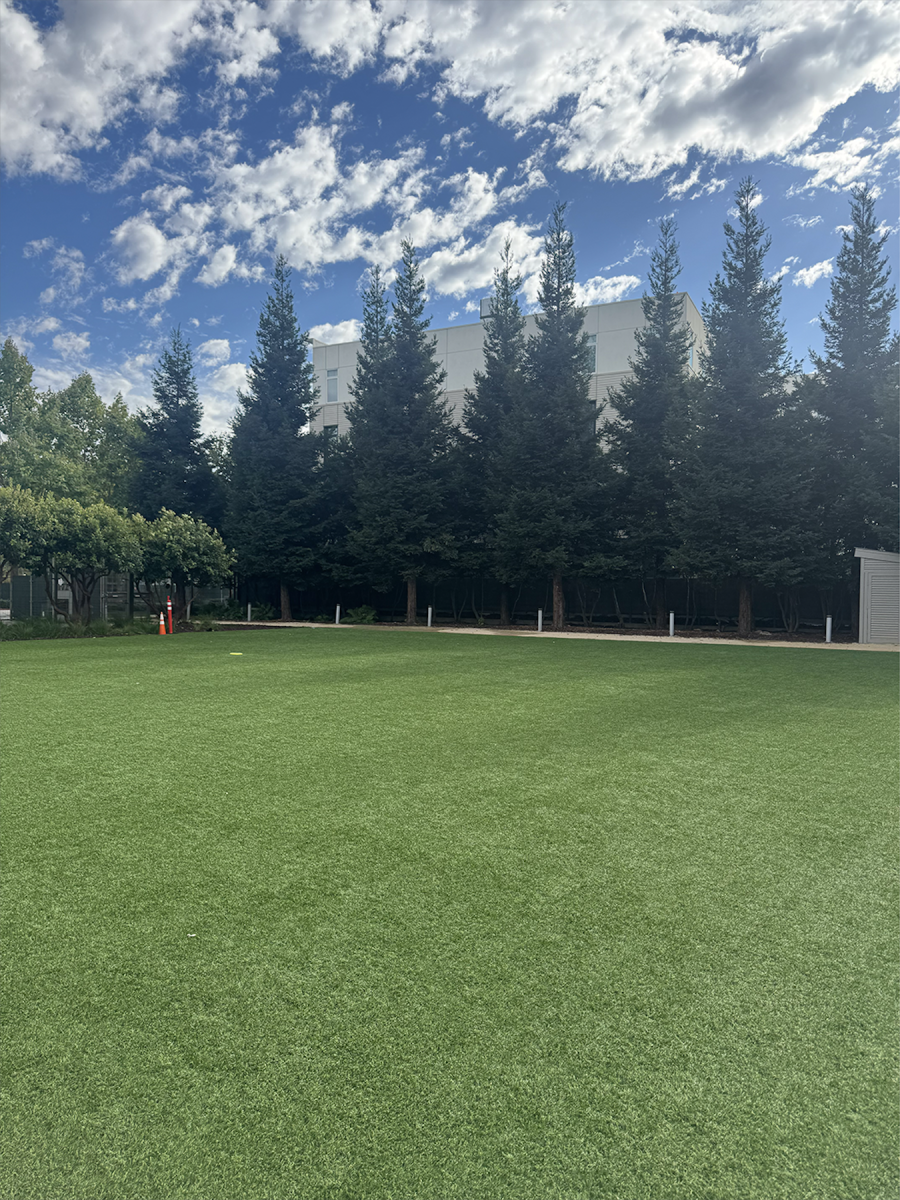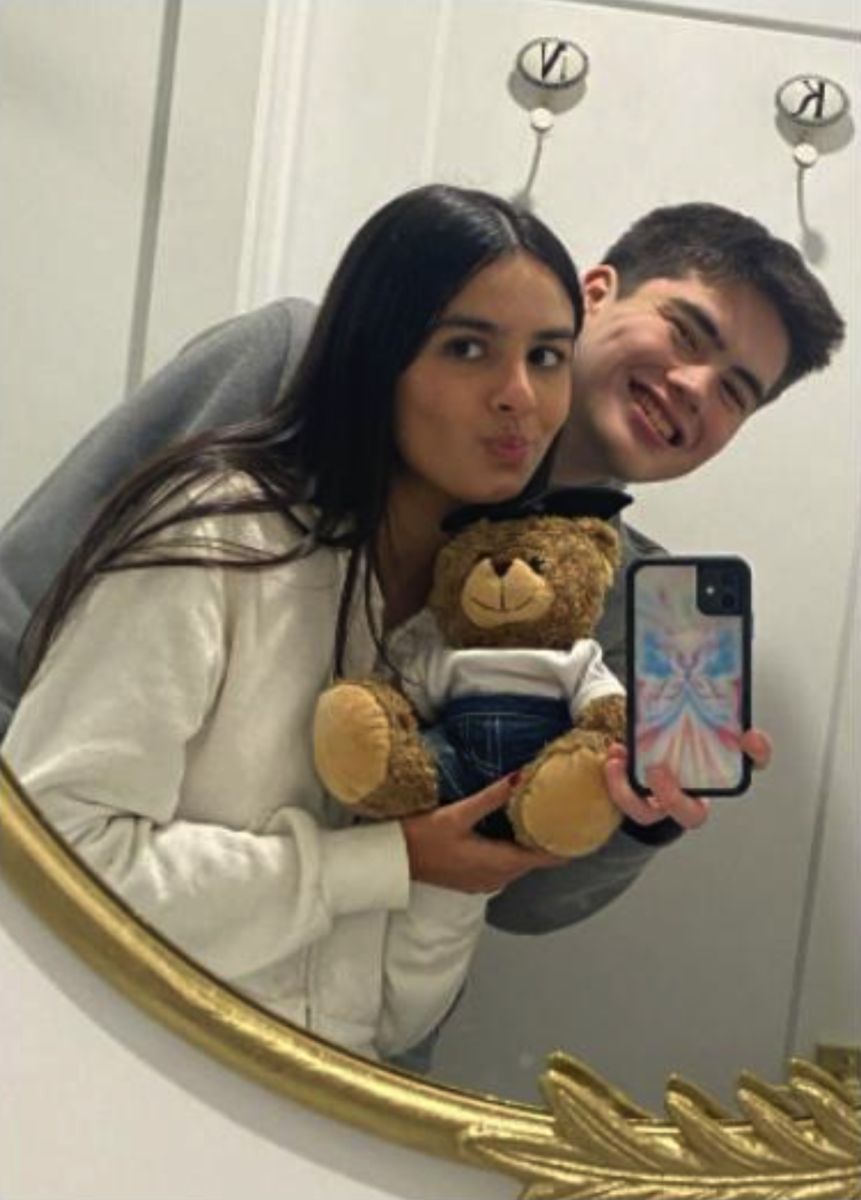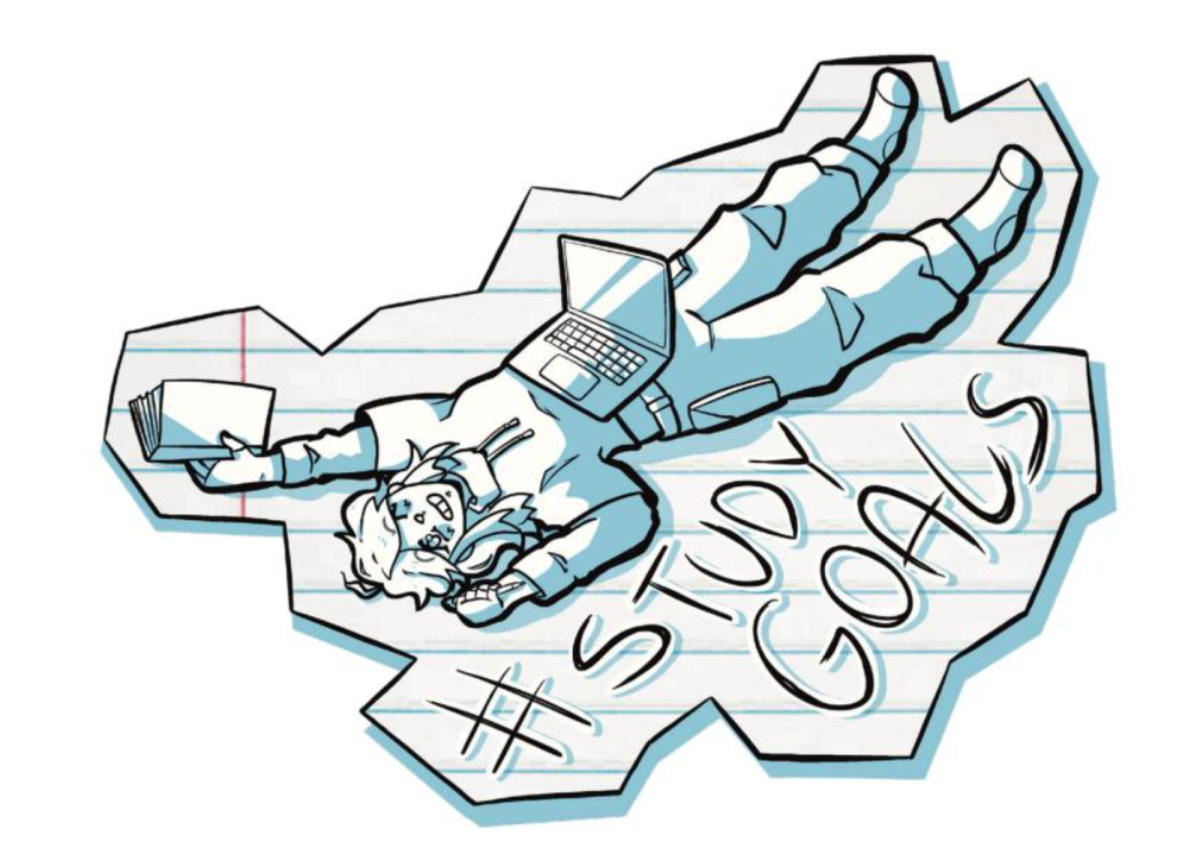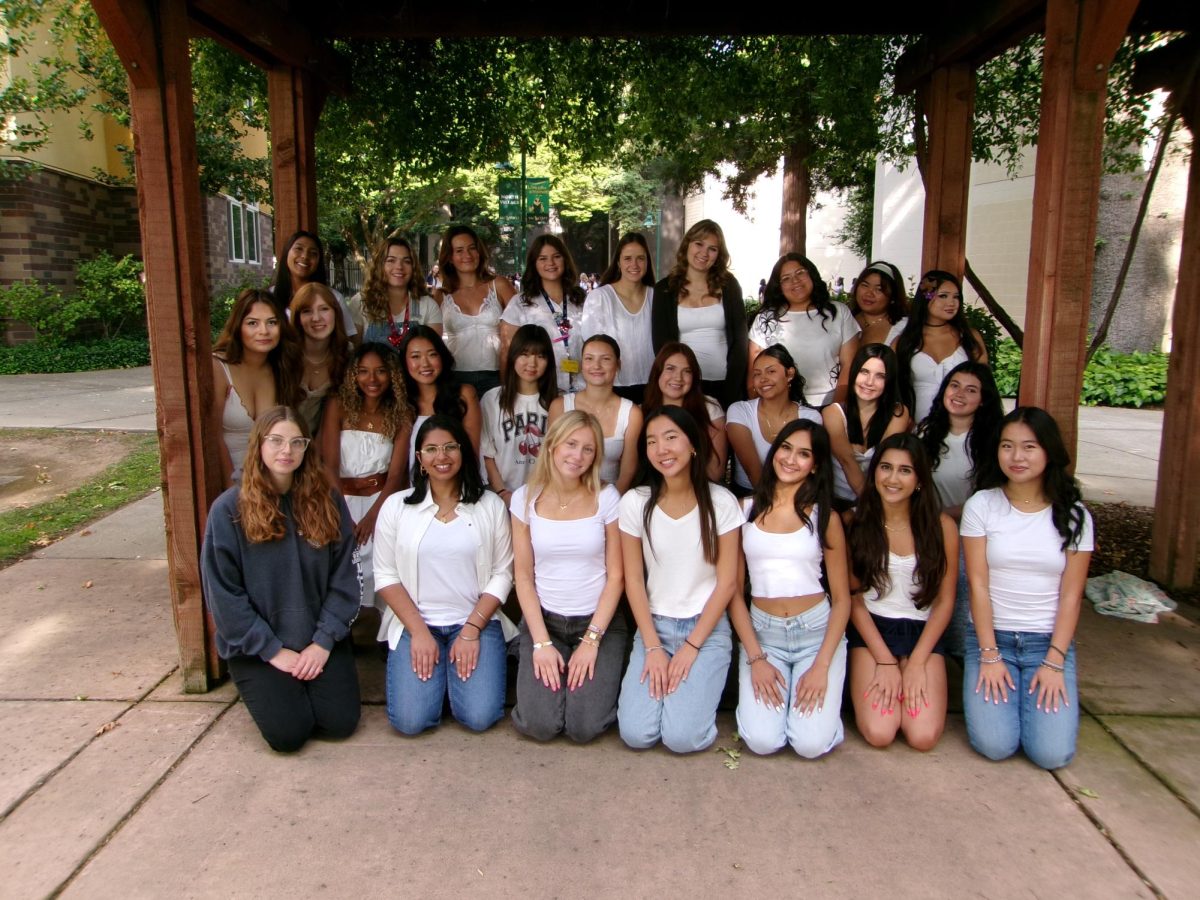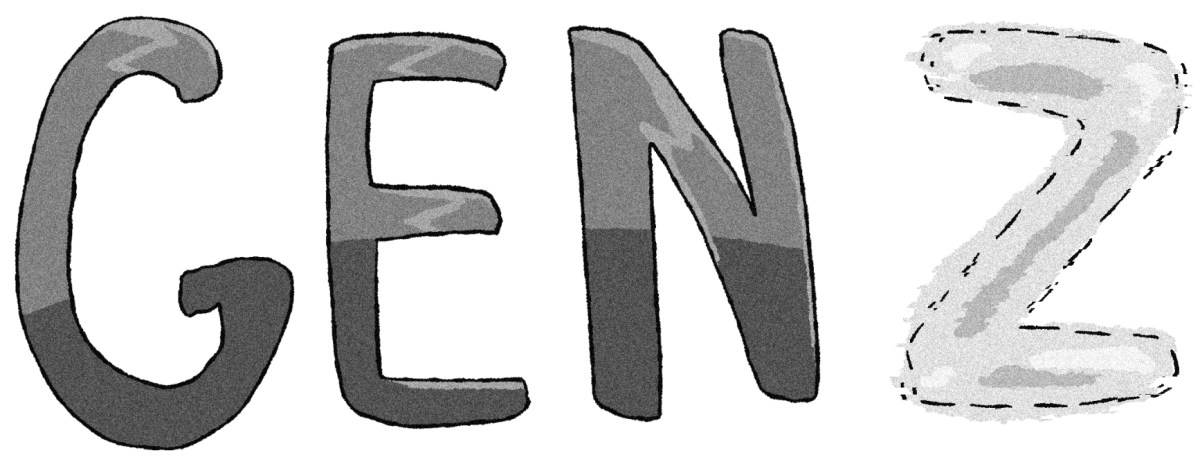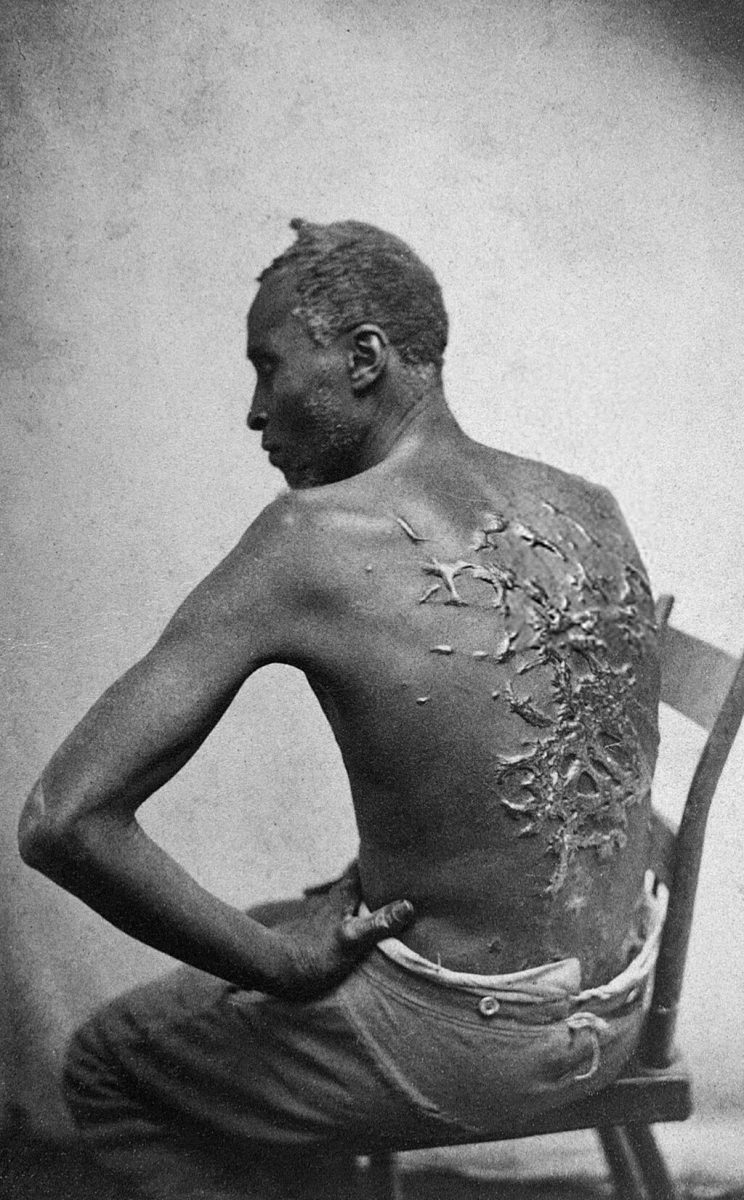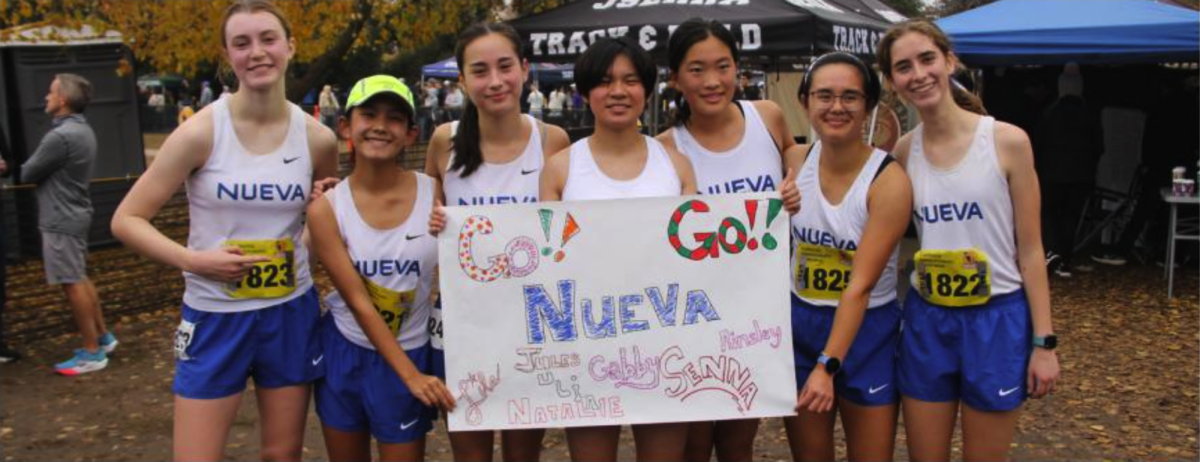En route to a fourth consecutive league championship, athletes on the girls track and field team also took initiative on campus this spring. They, alongside the athletics department, have recently helped to intentionally consider the experience for female athletes in numerous ways, such as diversifying representation among the coaching staff, increasing understanding of the female experiences related to physical and mental health in the previous all-male coaching staff, and establishing standards for coach-athlete communication.
Lila P. ’26, who runs for both the track and cross-country teams, was excited to converse with her coaches about these changes. “It definitely felt like we got to know our coaches in a new way, even after running for them for three years,” she said. “We had never had this kind of conversation before, and I think it really improved the dynamics of the team and made us excited.”
The girls have achieved some wins quickly, such as improvements to the coach onboarding process and the hiring of two female coaches. They have additional goals: eventually, they hope to collaborate with Upper School Division Head Liza Raynal and Director of Athletics & PE Brett McCabe to develop a ‘code of conduct’ for sports coaches to read and sign. The code will comprehensively advise interactions with all student-athletes, but it may include a section that specifically considers external pressures that stem from gender-based discrimination.
These considerations at Nueva are significant given the distinctive experiences for female runners and athletes in general, according to Jules S. ’26, a runner for the track team. Body image and difficult relationships with diet are issues that can affect women significantly and in ways different from men.
Additionally, Jules shared that she has had to endure catcalling, being followed, and being recorded while out on runs independently or with Nueva. Though she acknowledges that this can be a problem across genders, she has not observed a male teammate struggle with it.
“If you’re a high school girl who’s going on her run, and you realize that someone’s recording you, that’s really jarring,” Jules shared. She then shared her experience until late April, when she and others advocated for the hiring of female coaches.
“When you come back to the team, and you see no female representation in the [leadership], you really do feel more isolated,” Jules said. “I had never really heard anyone talk about being a female runner and how that was difficult.”
Lila also considers athletics and gender inevitably intertwined. “Our running is a lot about our bodies. So I think our gender ends up reflected in it, because we have to be thinking about our bodies every single day,” she said.
So, Jules and Lila set up an initial meeting to share their thoughts with Lopez, who is also the track and field coach, in March. They were joined by two other teammates, and they together discussed potential solutions, support figures, and next steps to pursue.
Lopez was very supportive, according to Jules and Lila, and he wanted to hear everything they had to say.
“Everybody deserves to have a positive experience,” Lopez later said. And if they’re not, then I want to know about it. Whether it’s something within the team, within the coaching staff, or myself. If we can improve in one way or another, I want to know about it.”
They next met with Raynal and McCabe, who supported the hiring of two new female coaches. In response to the group’s requests, the coaching staff grew to include health and administrative aide Danae Flores and MS Associate teacher Addison Eftekhari, who have already profoundly affected the track and field athletes and will join the cross country coaching staff in the fall.
“The team culture is really flourishing with them. It’s really only been a few weeks since they’ve really been like a part of our community, and you can already see the difference,” Jules said. Flores, for example, has begun to run with the long-distance girls team and boost team spirit.
Given his focus on building an enthusiastic culture surrounding athletics since his arrival in January 2023, McCabe was grateful that the group of students advocated for themselves, and that he was able to help make initial improvements. “We’re going to take the time to meet with [student-athletes] and not only listen and talk,” he said. “If there are things that we can implement or do differently, we’re going to do it, because it’ll be the right thing to do.”
Raynal also offered to codify formal acknowledgements for coaches’ interactions with female athletes. She plans to partner with other members of the administration to develop a draft, and members of the running team will also draft a separate version. Then, they will come together to identify the key components for a final copy. Eventually, this document will guide each incoming sports coach toward intentional, professional, and caring conduct.
McCabe, meanwhile, has been developing several new processes to implement into athletics in the future. To begin, the athletics administration will include an additional video module in coach onboarding that will provide specific information about coaching female athletes. Second, he is in collaboration with the SEL and DEI departments to bring in guest speakers to discuss how Nueva can best support its female athletes.
Beyond instruction for coaches, McCabe plans to regularly select sample athletes of both genders across all sports and personally meet with them, acknowledging that there are many moving parts to being a Nueva athlete that he may miss when present at just games and some practices. In these, there will be no agenda of any sort, in an effort to foster a natural conversation flow.
“[I’d like to] be in tune with our student athletes and what their day-to-day lives are like,” McCabe said. “What’s important to them? What are they feeling? What are they hearing? We want to know.”
For Lila and Jules, the next step in their process is to draft and finalize their coaches code of conduct in the next few months alongside other members of the girls running teams, Raynal, and McCabe. Then, they’ll return for their senior season with coaches Lopez, Flores, Eftekhari, and the remaining coaching staff.
Joined by new assistant coaches, Lopez aims to grow and make progress for the cross-country program, as he realizes that seeking opportunities to change and evolve is a core part of coaching athletics.
“If we’re not learning from each other or we’re not learning at all, then we shouldn’t be coaching. I think as coaches, it is our responsibility,” he said. “I owe it to [the athletes] to always improve.”
